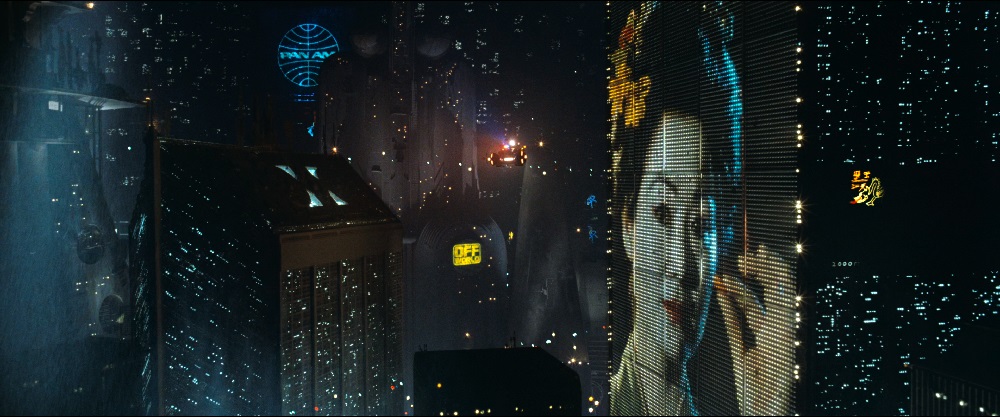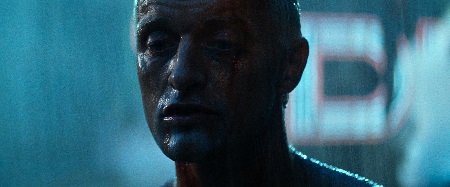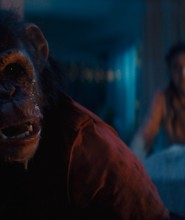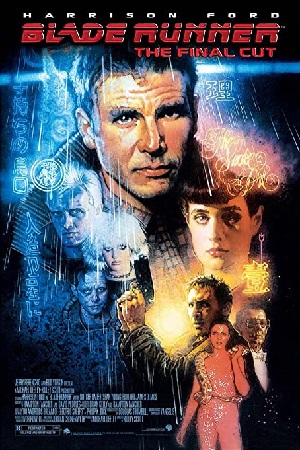
Blade Runner: The Final Cut (1982/2007)
by Sara Michelle Fetters - October 26th, 2007 - Four-Star Corner Movie Reviews
Return of Blade Runner Cause for Celebration
Blade Runner is a film you never forget. I don’t remember how old I was the first time I saw it (I think I was around eight), but I do recall the reaction I had sitting in my living room taking it in with my parents. I didn’t quite understand it. I didn’t really know what was going. But I did know I had just seen something extraordinary.
In the decades since its original release, the allure of Ridley Scott’s troubled masterpiece has been discussed by cinephiles, scholars and film fans all over the world. The director got in on the action in 1992 by helping to assemble a cut of the picture closer to what he’d originally intended. Getting rid of the narration and axing the studio-imposed happy ending, this new version was a revelation, and it was understandable to think this new edit would be considered the definitive one going forward.
But even that cut still wasn’t exactly what Scott had intended. The producers kept many of the key pieces of excised material from the production, stopping the director from completing things the way he wanted to. Now, a quarter-century after he first stepped foot onto the set, Scott has finally crafted Blade Runner into the picture he initially envisioned, all of the pieces and excerpts once kept away from him reinserted back into the film, making this anniversary release truly a “Final Cut.”
It was worth the wait. While the differences between 1992’s edit and this new one are relatively minor, the digital remastering and the various tweaks to the material (which includes minor re-shoots of key sequences) are revelatory. If Blade Runner (recently named one of AFI’s Top 100 motion pictures) was considered a masterpiece before, it is even doubly one now, all of which makes this reissue a thing of beauty you absolutely cannot afford to miss.
Based on the classic novel Do Androids Dream of Electric Sheep by Philip K. Dick, Blade Runner is set in the dystopian urban wasteland of Los Angeles, 2019 and follows the exploits of Detective Rick Deckard (Harrison Ford). He has been assigned to terminate four illegal synthetic human beings called “Replicants.” Their leader Roy Batty (Rutger Hauer) is out to meet his maker. He and his friends unleash unintentional brutal chaos in the pursuit of this quest. As the hunt for the fugitives intensifies, Deckard is drawn to a mysterious woman, Rachael (Sean Young), while also dealing with surreal memories leading him to question both his mission as well as his identity.
There’s no reason to rehash what has been said multiple times before, but what I will reiterate is how monumentally influential this picture has become over the years. From a visual standpoint, Scott’s sci-fi film noir is up there with Metropolis and Citizen Kane in how it changed the cinematic landscape. It is hard to imagine pictures as diverse as The Running Man, The Matrix, Minority Report, Strange Days, V for Vendetta or even Independence Day existing as they now do if this one hadn’t come along first.
But Blade Runner is more than just a visual marvel. It is Hampton Fancher and David Webb Peoples’ remarkable screenplay that holds the most resonance. Its melding of Raymond Chandler gumshoe noir with Dick’s cynical cybernetic musings is magnificent, the themes of alienation and identity popping right off the screen. The film is a brilliant amalgamation of sci-fi splendor and modern-day strum and drag, Scott melding it all into a poetic sensory symphony so spectacular it’s easy to see why the picture hasn’t lost a single bit of its timeless resonance.
Film Rating: 4 (out of 4)







